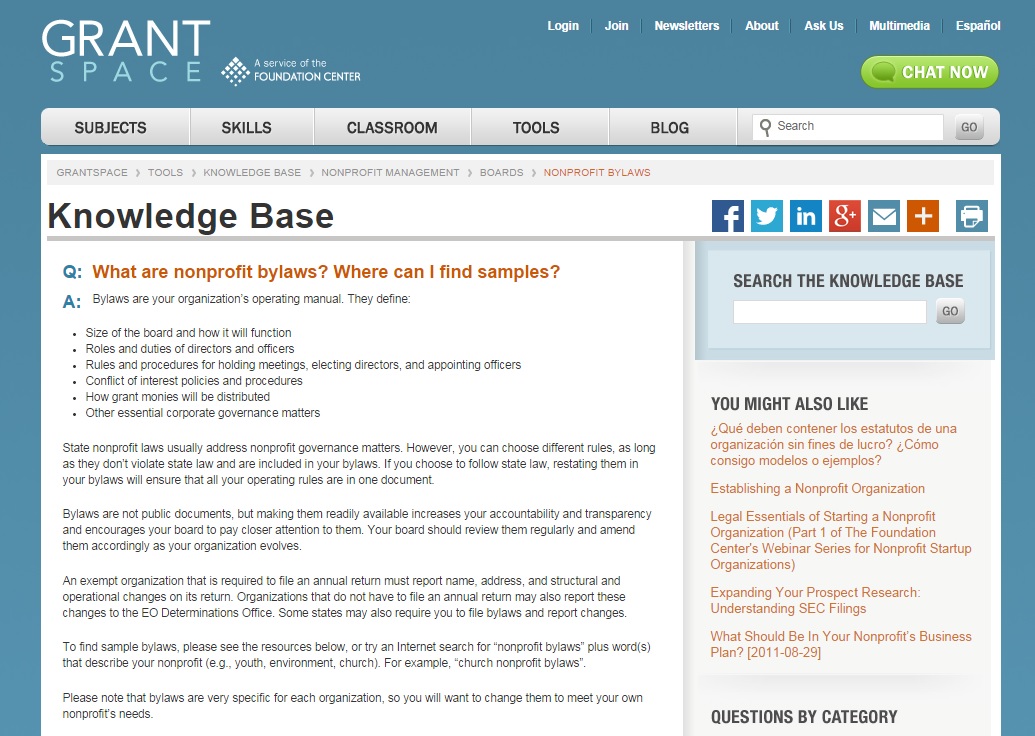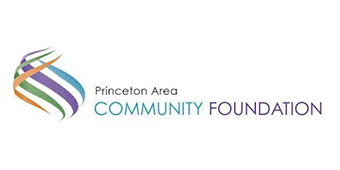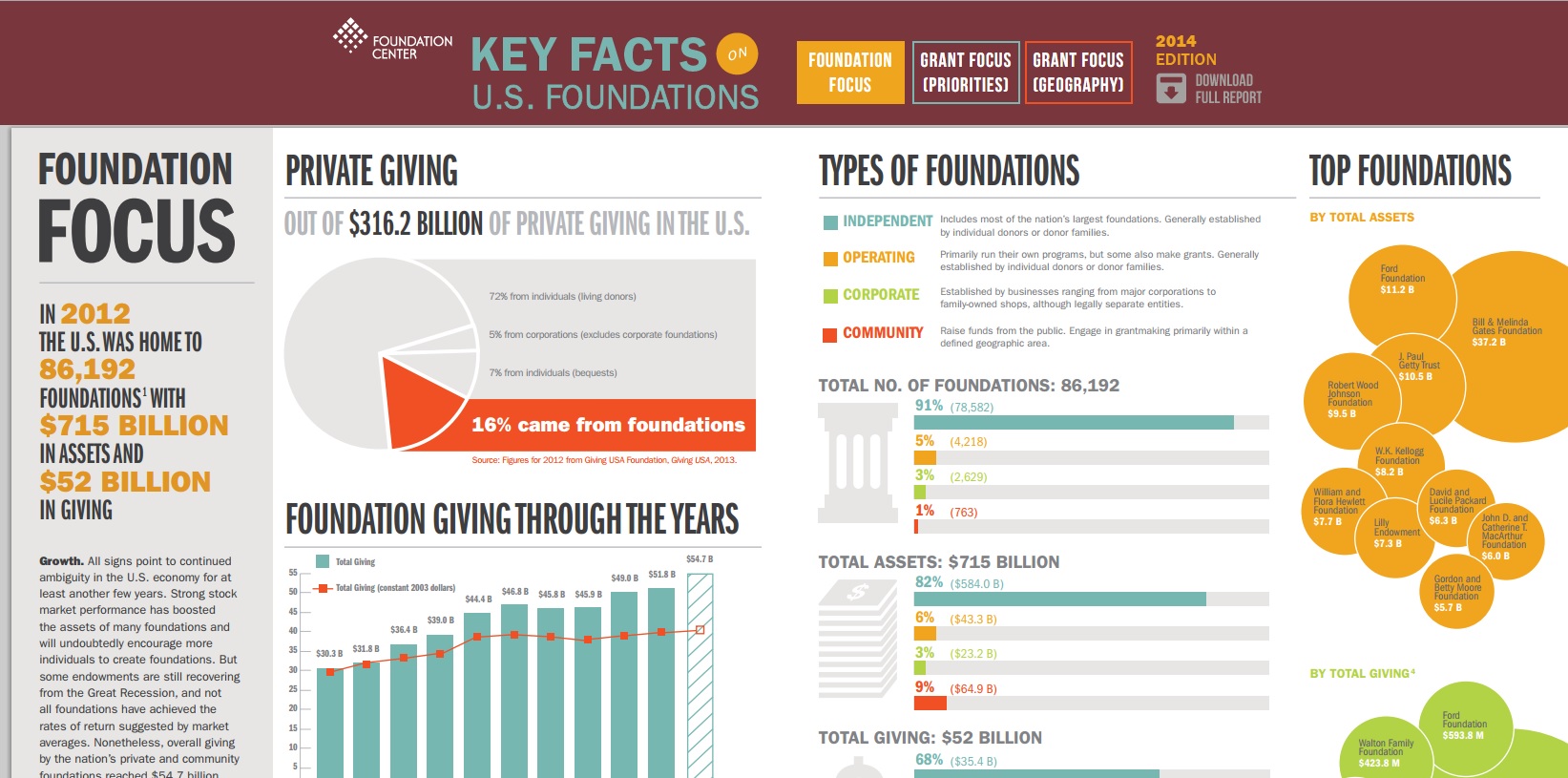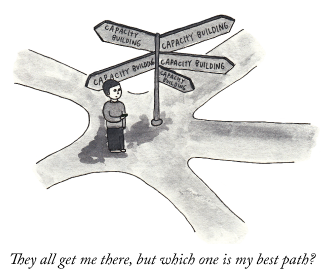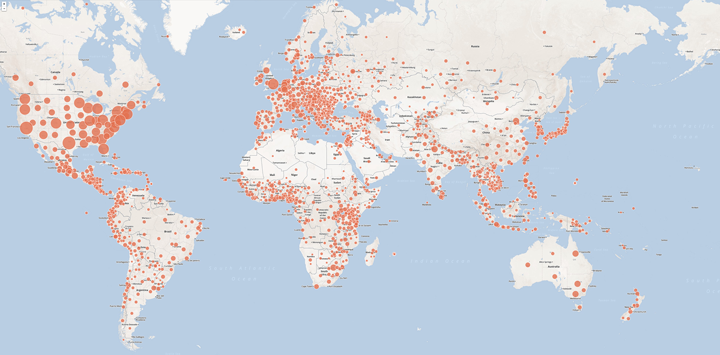Grantees Sound Off About Philanthropic Funding System
I believe that philanthropic foundations could make major progress in serving their constituents if they paid more attention to what grantees were saying about them. Not in the cozy pat-each-other-on-the-back love-fest way. I mean by listening to real, honest feedback.
Recently, we at Feedback Labs (as a neutral third party) decided to ask a group of twelve hundred organizations to publicly share stories about their experiences with funders, adopting our community storytelling approach to the task. That approach emphasizes open-ended narratives with a few follow-up questions, intermediation (people are a little more likely to say something negative if the boss isn't in the room), and confidentiality.
Sample Feedback
I selected these particular comments because the variety of issues addressed in them illustrates the importance of asking open-ended questions. In this case, the question was: "Talk about your experience approaching a grantmaking or funding organization that either did or did not grant you funding. What was the relationship like? Did you receive support from them?" (Feel free to add your own story to the collection here.) What follows are some representative highlights from the stories told by grantees about funders and the grantseeking process:
Comments from GlobalGiving partner organizations:
The process leaves little room to establish a relationship with a grantmaker because we're usually just asked to fill in a standard form and maybe attach a project summary and financial documents.
It was important for us to understand who the decision makers are. What are their priorities? And what aspects of the project are particularly appealing to the funder, given its vision and mission?
It was an unsolicited proposal, and we really didn't attempt to build any relationship with the foundation by writing to them or calling them up to ask where our proposal the previous year had fallen short. That really affected our chances of winning a grant.
We got to meet the organization through a mutual friend who had been following our work for years.
I was nervous when I sent the first email requesting support for a program in Nairobi. However, the funder responded positively and even made a trip to Nairobi to see the program first hand.
We waited endlessly for a decision on our proposal. One of the basic problems in dealing with a large CSR unit is that you have to keep following up and have a person dedicated to making sure that happens.
And here are some comments from smaller, emerging organizations not yet partnered with GlobalGiving:
While funders always seem to be encouraging, they rarely take the time to ascertain real needs, or they'll look at a proposal and decide that while it has merit, we aren't able to fund it at this time.
Our grant proposals are always rejected, despite all the care we take with them.
They [i.e., funders] never send feedback about our proposal and what we can do to improve it. That leads to a lot of frustration as far as fundraising is concerned.
It was tiring and stressful having to consult with partners, including government entities, where time maybe was not a factor for them but was for us. We would be promised a call-back and then not hear from the person for weeks.
Relationships
Because we explicitly asked organizations to share one of each type, there was an even mix of both success and failure stories. And in my read of those stories, success usually was associated with building a personal relationship with the person in the foundation tasked with signing off on the grant. In fact, some of the folks sharing stories describe the process primarily as being about "who you know." For a sector that talks a lot about "evidence-based" this and "data-driven" that, there sure are a lot of people who feel that the most important thing in winning a grant is the social capital developed through personal relationships and existing connections. I mean, this comment sort of expresses it in a nutshell: "They funded us for 13 years! A record! Until their Southeast Asian representative retired."
R-E-S-P-E-C-T
Most participants who mentioned the content of their proposals said it didn't matter that they were well-written; they were still ignored. Others complained about a lack of feedback after their proposal had been rejected. More than one complained about never being told their proposal had been rejected. All these complaints illustrate why I think the work of Feedback Labs is so important. Funder transparency and accountability take many forms, but simply creating feedback loops in which funders actively listen and respond to grantees whose proposal have been rejected would go a long way to creating greater effectiveness for all concerned.
It bears mentioning that there were a few stories about corporate social responsibility (CSR) people wanting to demonstrate to an important stakeholder that the company was charitable, and then abandoning the effort – and any promises of funding – as soon as the stakeholder meeting was over. It's a side of corporate philanthropy you don't often hear about, but it happens. And while it's of course possible that the companies in question may have had valid reasons for not extending support to those organizations, the many such stories from the field leave one with a sense of grantees emerging from the CSR process feeling disrespected. In fact, in one of the follow-up questions, survey participants checked the box for "respect" more often than almost any other category:
[Ttlak graphic]
One of our story visualizing tools. Larger icons indicate that this group of participants tagged their stories as being related to this topic (e.g., respect) more often than others.
It's important to note that not every grantee feels this way. Many participants went out of their way to talk about how much they appreciated the fact that a funder would consult with them on an issue from time to time. Still, if honest dialogue and mutual respect between funders and their grantees were more commonplace, one would have to believe there would be fewer exclamation points in emails announcing that a nonprofit had been awarded a grant!
The above is just a taste of what we'll be presenting in a longer report to be made available later this year. To read more of these stories, visit storylearning.org/search, or follow this link for only the grantee stories mentioned above.
Marc Maxson is an innovation consultant for GlobalGiving and FeedbackLabs. A version of this post originally appeared on the Transparency Talk bog.



